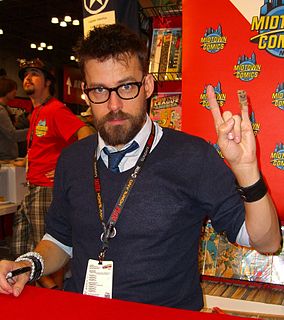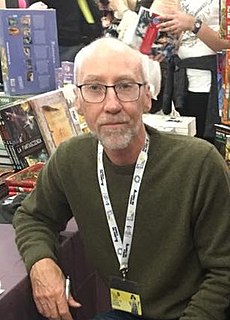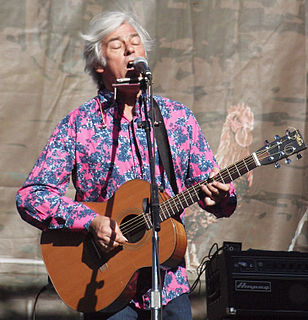A Quote by Steven Spielberg
I don't make unconventional stories; I don't make non-linear stories. I like linear storytelling a lot.
Quote Topics
Related Quotes
It is very linear storytelling, and I think that's not so much the fashion. I was watching a new drama the other night which was extremely non-linear, where you flash back and flash forward in ways that certainly keeps you on your toes as the audience. There's not much of that courage with the storytelling in our Maigret film.
I think continuity is the devil. I think it's constricting and restrictive, I think it's alienating and off-putting, and it inflicts an artifact of linear time as we experience it on something that exists outside of linear time as well as keeps new readership away by keeping comics a matter of trivia and history rather than actual stories.
So I found myself telling my own stories. It was strange: as I did it I realised how much we get shaped by our stories. It's like the stories of our lives make us the people we are. If someone had no stories, they wouldn't be human, wouldn't exist. And if my stories had been different I wouldn't be the person I am.
All of us are linear thinkers. We evolved in a world that was local and linear. You know, back 100,000, 200,000, millions of years ago, when we were evolving as a human species, nothing changed. You know, the life of your great-grandparents, you, your kids - it was the same. And so we are local and linear thinkers.
I know that my tendency is to be linear, and I'm trying to find ways to subvert that. And so in 'Bellocq's Ophelia' my device for subverting it was to tell the story and then to tell it again; it always circles back to this one moment, and it's not linear, but it's round in that way, and much of 'Native Guard' is like that.







































